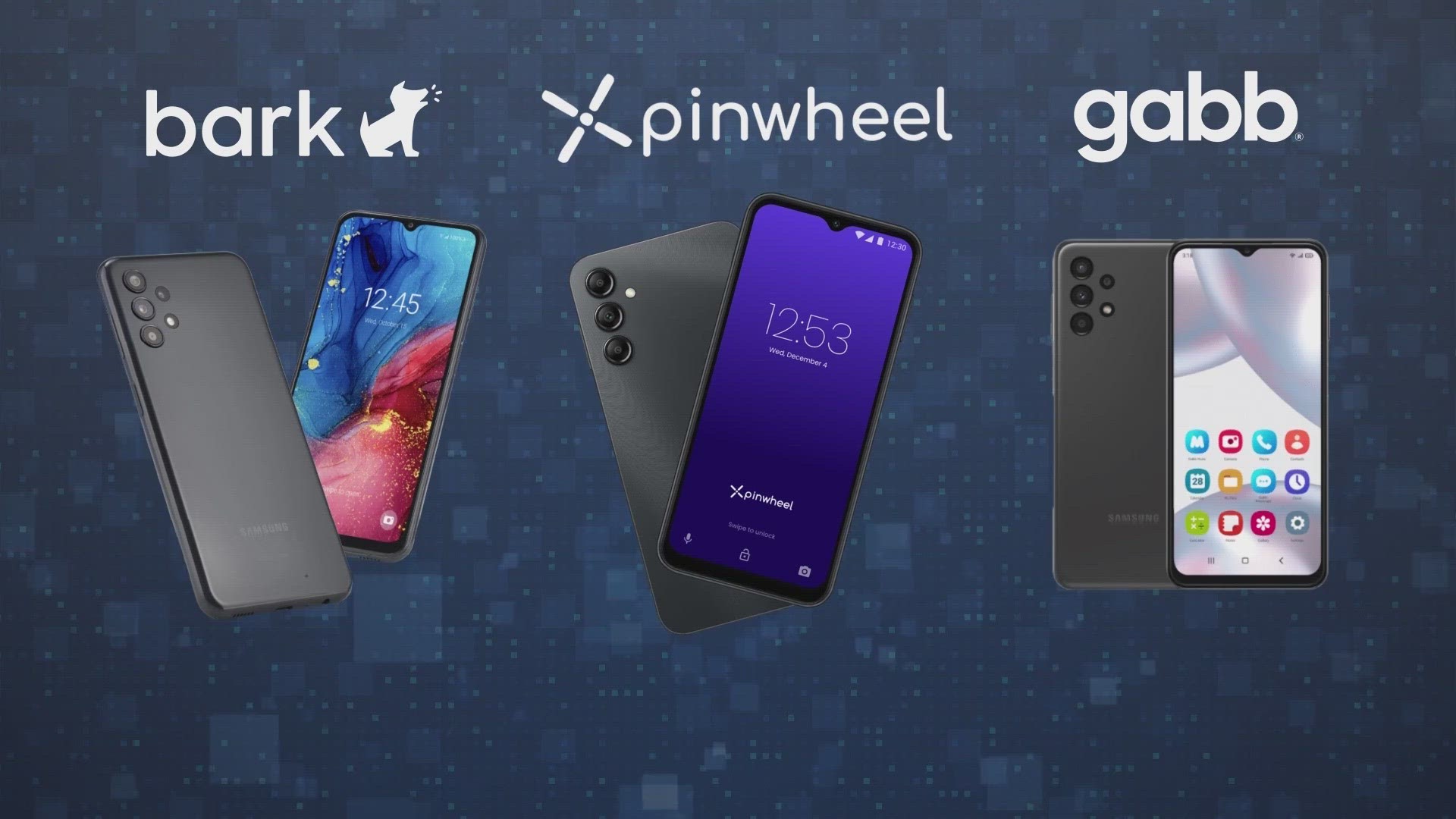DALLAS — “Dad, when can I get a cell phone?” is a common refrain in our home. And though we’re not quite ready yet to dip our toes into that water, the day is coming.
As many parents have no doubt seen firsthand, studies suggest arguments over technology and devices are near the most constant families have to deal with.
But a new wave of low-tech smartphones (less-than-smart phones?) are designed to help parents bridge the gap between a wide open web and their kids being left in the technology dust.
“We have a new job to do as parents, which we never had before, which is to sort of help these kids to learn how to navigate this space so they can do it responsibly and that tech can end up helping them and not hurting them in their life,” says tech CEO Dane Witbeck.
Witbeck's company, Pinwheel, makes a phone designed to ease kids into the digital era. With a limited feature set, robust parental controls, and a curated app store, Witbeck compares is to driver’s ed for phones. And he says the response has been overwhelming.
“Oh yeah we’re hearing from parents all the time,” Witbeck says. “This is really helping them change the way they parent and helping them do this job.
Parents have plenty of reasons to be concerned about the effects of too much access to smartphones too soon. A National Institute of Health study shows 89% of kids aged 13-17 own a smartphone. And the teens who report a higher use of smartphones and social media also report higher than average incidents of struggles with mental health, self harm and even suicide.
But parenting experts are quick to remind that phones are merely digital tools with plenty of benefits as well. They point to apps that help kids study and the evolving communication styles of today’s teens. Being able to connect with peers is important to social and emotional development, no matter the medium. Which means learning to use today’s devices in a positive manner can be key to healthy habits down the road.
“Kids need to be able to manage this tech themselves. Our job as parents is to teach them and guide them to do that,” Witbeck says. “It’s helping kids to learn that this is a tool first and not a toy.”
Pinwheel isn’t the only option. Other manufacturers, like Gabb or Bark, have popular devices on the market. So parents have options if they want to help their kid be a part of the digital age in a way that can help them avoid the pitfalls of phone addiction and all-consuming social media.
“Even if it’s only for a couple of years, getting the right tool in place that helps them frame it the right way will really pay big dividends throughout their life," Witbeck says.
More Digital Parenting coverage from WFAA's Marc Istook:

